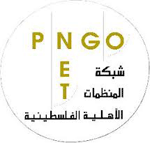Published on Wed, 2013-11-13 20:14
As Egypt’s political crisis continues, its government will be asked to account to the United Nations for what has been done to address the social injustices which fuelled the revolution. On November 14, Egypt will appear before the UN Committee on Economic, Social and Cultural Rights in Geneva, where it will be required to demonstrate how it has taken into account its human rights obligations as a party to the International Covenant on Economic, Social and Cultural Rights in navigating the country´s turbulent transition. This will mark the first time that Egypt has come before a UN human rights treaty body since the 2011 revolution. |
Published on Thu, 2013-11-07 14:26
South Centre presents its view on the Post-2015 Development Agenda and Sustainable Development. The United Nations’ Post-2015 Development Agenda should not simply extend MDGs, or reformulate the goals, but focus instead on global systemic reforms to remove main impediments to development and secure an accommodating international environment for sustainable development. This is a big, ambitious agenda which cannot be acted on overnight. An action plan for systemic reforms could be supplemented, but not substituted, by specific goals in some areas of economic and social development. |
Published on Thu, 2013-11-07 14:25
Right based civil society networks in cooperation with different students’ cultural organizations of Dhaka University organize a seminar at the Nowab Ali Chowdhury Senate Building and a photo exhibition at the Teacher Student Centre (TSC) in Dhaka University. The vice chancellor of the university Mr. A A M S Arefin Siddique inaugurates the photo exhibition. |
Published on Thu, 2013-11-07 11:31
The latest report by the UN Special Rapporteur on Right to Water and Sanitation (“the Rapporteur”), Ms. Catarina de Albuquerque, focuses on the theme Sustainability and non-retrogression in the realization of the rights to water and sanitation. The report offers useful and welcome guidance for those seeking to draw meaning from the human right to water on the areas of finance, investment and other related economic ones. Some of its developments will arguably be useful beyond the right to water, charting a path for how to draw such meaning in the case of other rights. The Special Rapporteur devotes a portion of her report to develop the concept that sustainability is “non-dissociable” from human rights law. |
Published on Thu, 2013-11-07 11:06
The Palestinian Non-governmental Organizations Network PNGO raised concerns and warned of a dangerous deterioration in the humanitarian situation in the Gaza Strip due to severe drop-long power cuts caused by the fuel outage. PNGO stated that power outage in the besieged Gaza Strip seriously affects basic life facilities in particular health , water, education and sanitation as well as vital sectors. |
SUSCRIBE TO OUR NEWSLETTER







